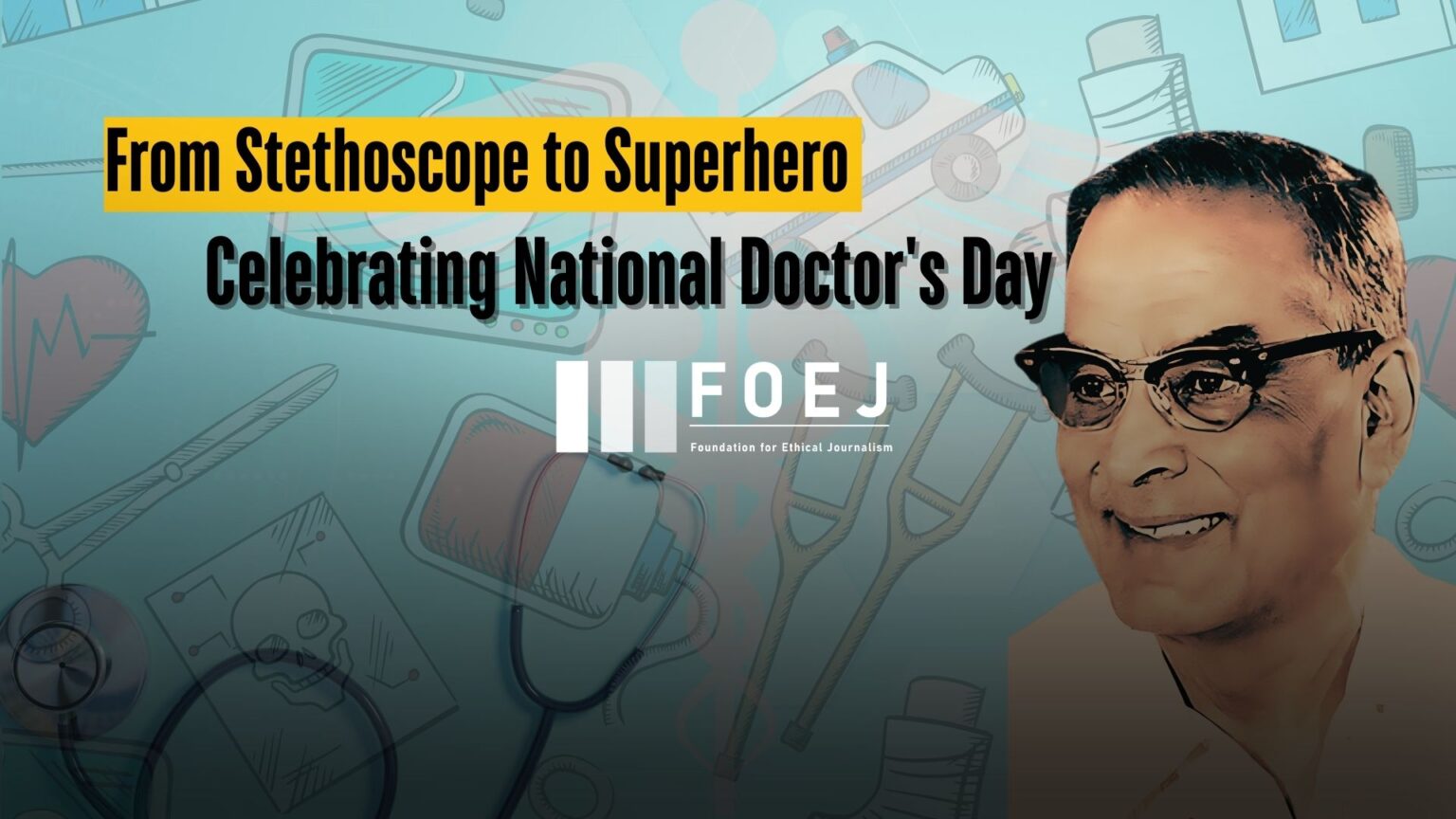Honoring the Healers: National Doctor’s Day and the Evolving Doctor-Patient Dynamic
Every year on July 1st, we celebrate National Doctor’s Day in India. This day serves as a tribute to Dr. Bidhan Chandra Roy, a distinguished physician and the second Chief Minister of West Bengal. Interestingly, both Dr. Roy’s birth and death anniversary fall on July 1st, 1882 and 1962 respectively. National Doctor’s Day acknowledges the tireless dedication and hard work of physicians and all front-line medical personnel.
More Than Medicine: The Human Connection at the Heart of Doctor-Patient Care
However, the relationship between doctors and patients has undergone a significant transformation over time. As Dr. Aviral Vatsa, a practicing general physician with the NHS in Scotland, explains, the dynamic has shifted. “Patients used to place unquestioning trust in our advice,” he says. Today, patients are more informed and actively participate in decision-making processes. While Dr. Vatsa sees this as a positive step towards patient empowerment and a collaborative approach, he acknowledges the potential challenges when expectations are not aligned. Building trust and clear communication are key to navigating this evolving dynamic.
Dr. Areesha Khan, a BHMS graduate from Delhi University with over five years of clinical experience, offers a doctor’s perspective. She quotes a common sentiment: “Half of my illness goes away after meeting my doctor.” Dr. Khan emphasizes the importance of personality traits that extend beyond medical expertise. Doctors who can understand, listen, and find the root cause of a patient’s concerns can foster a powerful healing relationship.
National Doctor’s Day is a time to appreciate the vital role doctors play in our lives. However, it also serves as a reminder of the evolving landscape of healthcare. As Dr. Vatsa and Dr. Khan illustrate, successful navigation of this evolving doctor-patient dynamic requires adaptation, effective communication, and a focus on the holistic well-being of the patient.
Unequal Healthcare: Can Doctors Bridge the Divide?
If in the last few years we see there is a clear disparity in our community and a certain kind of mindset has been shaped regarding minority communities, especially against Muslims. Social determinants of health, the factors influencing a person’s well-being beyond medical care, are gaining increased attention. Dr. Aviral Vatsa, a practicing physician, highlights the urgency of addressing social and economic inequalities. “In my clinic,” he explains, “we go beyond treating medical conditions. We consider each patient’s living circumstances and connect them with social services when necessary. Additionally, we customize treatment plans to better meet their specific needs.”
This focus on social determinants is particularly crucial in light of existing disparities. A recent report by the Health Ministry reveals a concerning doctor-to-population ratio in India: a staggering 1:834. This raises the question: with such a high patient load, can doctors truly prioritize care based on sociological factors?
Dr. Areesha Khan, a physician with over five years of experience, offers a reassuring perspective. “When a patient walks through my door,” she says, “their religion is irrelevant. For me, there’s no such thing as a VIP patient. A patient is a patient, and my responsibility is to provide unbiased care.”
Dr. Khan’s statement underscores the ethical commitment many doctors hold, prioritizing patient well-being above all else. However, the vast doctor shortage in India presents a significant challenge in addressing social determinants and ensuring equitable care for all.
Embracing the Theme
This year’s theme, “Healing Hands, Caring Hearts,” underscores the dedication and compassion that doctors bring to their daily practice. It highlights the vital role doctors play in saving lives and providing comfort and care to their patients. As we talk about the 21st century equipped with hi-fi Technology there is still a certain problem that India needs to address. The doctors today are concerned but at the same time relieved too.
“Technology breakthroughs like AI and telemedicine are revolutionary. They improve the efficiency and accessibility of healthcare. The way that people view us is also being altered by these technologies, which highlights the necessity for doctors to constantly learn and adapt. Words of Appreciation” Dr Vatsa added, ” In addition to physical concerns, we also have to deal with administrative work, social expectations, and mental health issues. The COVID-19 pandemic is a great example of this, and its effects are still being felt. It’s a lot to juggle, but maintaining our own mental health and having a strong support network are essential. Even though the technology has advanced and in few seconds we can connect with the doctors Dr Areesha talking about Telephonic consultancy says “Telemedicine is okay like if you are living abroad and there is no chance to meet and it’s an emergency situation Telemedice facility is life saving at a time but meeting the doctors personally creates a huge impact on patients life”
The Never-Ending Shift: Balancing Duty and Life as a Doctor
Dr. Khan’s wry smile hinted at the universal truth many doctors face: a precarious personal life. “Doctors have no personal life,” she quipped, a statement both laced with sarcasm and underlined by a deep sigh. While the dedication to patient care is undeniable, Dr. Khan, like countless physicians, confronts the constant struggle of establishing boundaries. “Busy schedules” is an understatement for most doctors. Crammed days filled with appointments and patient consultations leave precious little room for personal time. Yet, Dr. Khan emphasizes the importance of family. “They need us too,” she says, her voice softening.
The frustration is palpable when Dr. Khan describes receiving patient calls outside of clinic hours, during evenings or even while away. The inherent duty to care for patients clashes with the very real need for personal space and well-being.
Dr. Khan’s story is a microcosm of a larger issue within the medical profession. Striking a balance between professional commitment and personal life remains a persistent challenge for doctors everywhere.
Dr. Vatsa acknowledges the well-known struggle for work-life balance in the medical field, but emphasizes its achievability. They outline a three-pronged approach to success: prioritizing self-care, setting boundaries, and leveraging support networks.
Self-care is positioned as the cornerstone of Dr. Vatsa’s strategy. By taking care of their own physical and mental well-being, doctors are better equipped to care for their patients.
Establishing boundaries is another crucial element. Dr. Vatsa highlights the importance of setting clear lines between work and personal life. This ensures doctors have dedicated time for themselves and their families.
Finally, Dr. Vatsa recognizes the value of support systems. Collaboration with family and colleagues allows doctors to share the load and create a more sustainable work environment. This collaborative approach ultimately benefits both the medical professional and the patients they serve.
Today, a day etched in gratitude, we celebrate the extraordinary doctors who walk among us. Your hands, guided by expertise and a heart overflowing with empathy and compassion, a hope of healing for countless lives.
You are the heroes in white coats, selflessly dedicating yourselves to the well-being of others. Your knowledge, a ray of light in the face of darkness, brings hope and a path towards recovery for those who need it most.
With every diagnosis, with every treatment plan, you offer a lifeline, a chance to reclaim health and wholeness. The impact you have is profound, a ripple effect spreading joy and relief to families and communities.
So on this National Doctor’s Day, we offer our deepest thanks. Thank you for the countless sleepless nights, the unwavering dedication, and the unwavering belief in the power of healing. You are truly exceptional, and for that, we are eternally grateful.









